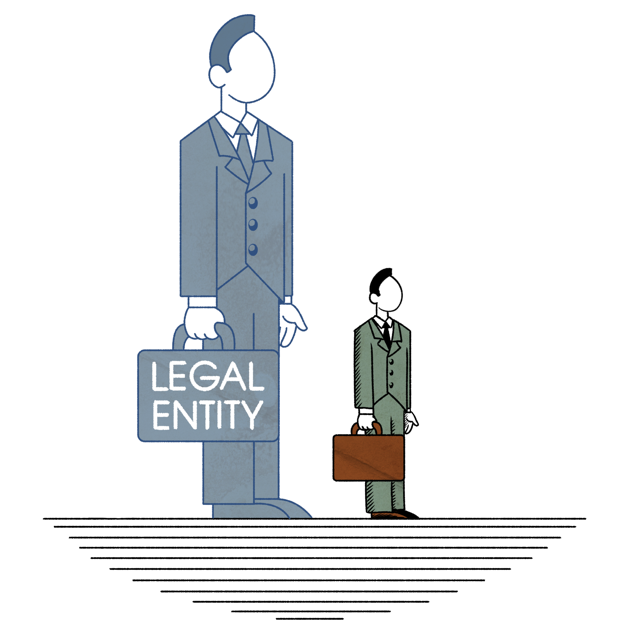Buy a Franchise
Why Should I Use a Legal Entity to Operate my Franchised Business?
This really ends up being a very simple decision. First, go ahead and answer these two questions: 1) have you worked hard to earn your living, create a savings account and/or buy a car and house for your family?2) is it important to you that you be able to keep all of that?
The main reason for forming an entity is to protect your personal assets. When you have a new business, or you are the only owner of the business, it might sound like operating through an entity is the same thing as operating as an individual. However, if anything goes wrong during the life of your business, it will be a very different situation if you have formed an entity.
You’re probably thinking this is just lawyers talking about more doom and gloom. But that’s our job – to think about the worst-case scenario. So, let’s just think through this for a minute. Imagine you have a successful business, but then something goes wrong – you’ve entered into a contract and the other party sues you for breaking the contract. Or someone walks into your location, slips and falls and sues you for damages.
If you have operated your business through a legal entity (and followed other important formalities like having a separate business bank account, signing all agreements on behalf of the entity, adequately capitalizing your company, obtaining insurance, making state and IRS filings on time, etc.), you should be in good shape. The most likely scenario is that your entity will be sued, and if your entity is found to be at fault, then it will only be the assets of your entity that are at risk. Another way to look at this is to compare it to buying stock. If the company that you bought stock in goes bankrupt, you lose your investment, not your house.
Lawyers refer to this protection as the “corporate veil,” but if you don’t respect the corporate structure (i.e. don’t follow the rules) a plaintiff might be able to “pierce the veil” and get to your assets.

However, if you have operated your business as “Joe Smith, an individual,” there will be no protection and it will be you personally who is sued. If you are found to be at fault, the other party can come after your personal assets – like your savings account, car and house!
There are other benefits to forming a legal entity, including that it makes it much easier if you decide to sell your business. Also, other companies such as suppliers might only agree to enter contracts with you if you have an entity. This is why we always recommend taking the extra step of forming a legal entity.
*The most common forms of legal entities these days are limited liability companies (LLC) and corporations (s-corporations or c-corporations). You can work with your attorney and accountant to decide which legal entity is the right one for your business.
